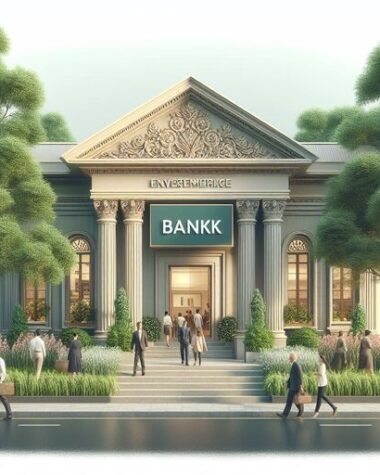For American Muslims navigating the complexities of personal finance, the concept of interest-based loans in traditional banking can create a conflict with their religious beliefs. Islam prohibits “riba,” which translates to usury or excessive interest. This is where Islamic banking emerges as a bridge, offering financial products and services that adhere to Sharia law principles. While the term might sound unfamiliar, Islamic banking is a growing sector within the US financial landscape, and understanding its core concepts can be empowering for financially conscious American Muslims.
Beyond the Basics: Unveiling the Pillars of Islamic Finance
The foundation of Islamic banking rests on three key principles:
- Profit-Sharing (Shirkah): Imagine a handshake deal between you and the bank. Instead of a traditional loan with interest, Islamic banks utilize profit-sharing agreements. Let’s say you need financing for a new home. The bank essentially co-owns the house with you for a predetermined period. You make fixed monthly payments, and once the house is paid off, you gain full ownership. The bank, in turn, receives a pre-agreed-upon share of the profits from the investment. This fosters a sense of partnership and shared risk between you and the financial institution.
- Asset-Based Financing: Islamic banks prioritize financing the actual asset itself, rather than simply lending money with interest. This can take various forms. In Murabaha, for example, the bank acts as a middleman. They purchase the car you desire and then sell it to you at a pre-determined profit margin. You then make fixed monthly payments to own the car outright. This removes the element of riba and ensures both parties understand the terms upfront.
Beyond Principles: Unveiling the Benefits of Islamic Banking in the USA
Exploring Islamic banking in the USA offers several potential benefits for American Muslims:
- Peace of Mind: Knowing your finances adhere to your religious beliefs can bring significant peace of mind. The transparency and ethical framework of Islamic banking can alleviate concerns about riba and ensure your financial decisions align with your faith.
- Transparency and Predictability: Islamic financing agreements are structured with clear terms. Profit-sharing mechanisms and asset-based financing eliminate the ambiguity of interest rates and hidden fees, fostering a sense of predictability in your financial planning.
- Ethical Investment Options: Islamic banking allows you to invest your money in a way that aligns with your values. Knowing your investments are supporting businesses that operate ethically can be a significant benefit.
A Landscape in Motion: Exploring the Current State of Islamic Banking in the USA
While the US doesn’t have a network of full-fledged Islamic banks with national branches, there are several options available for American Muslims seeking Sharia-compliant financial solutions:
- Islamic Financial Institutions (IFIs): These specialized institutions operate similarly to traditional banks, but offer Sharia-compliant financial products like financing for homes, businesses, or education. Examples include University Islamic Financial (UIF) and Guidance Residential. They provide a familiar banking experience with products that adhere to Islamic principles.
- Fintech Solutions: Technology is changing the financial landscape. Companies like Fardows offer mobile apps and debit cards that allow you to manage your finances in a Sharia-compliant manner. These innovative solutions offer convenience and accessibility for a tech-savvy generation.
- Traditional Banks with Islamic Banking Products: As Islamic finance gains traction, some major US banks are starting to offer Sharia-compliant investment accounts or other financial products. This demonstrates a growing recognition of the demand for Islamic banking options within the mainstream financial sector.
Important Considerations Before You Dive In
While Islamic banking offers a compelling alternative, there are some important points to consider before making the switch:
- Limited Availability: Compared to traditional banking, Islamic banking options in the USA are still limited geographically and in terms of product variety. Thorough research to find available products and institutions in your area is crucial.
- Regulatory Environment: The US regulatory framework for Islamic finance is still evolving. It’s important to choose reputable institutions with a strong track record and clear regulatory oversight to ensure you’re making sound financial decisions.
- Fees and Structures: Profit-sharing agreements and asset-based financing may have different fee structures than traditional loans. Be sure to compare costs carefully, including any upfront fees or profit-sharing percentages, to ensure you’re getting the best deal.
The Demand for Islamic Banking in the USA: A Future Full of Potential
The demand for Islamic banking products is steadily growing in the USA. As the Muslim population continues to rise, so too will the availability of Sharia-compliant financial options. Collaboration between different players in the financial sector holds great promise for the future:
- IFIs and Traditional Banks: Partnerships between Islamic financial institutions and established US banks can leverage the expertise of both parties. IFIs can bring their knowledge of Sharia-compliant products, while traditional banks can provide a wider reach and robust infrastructure. This collaboration can significantly expand access to Islamic banking options.
- Fintech Innovation: Technology is a game-changer in the financial industry. Fintech startups with a focus on Islamic finance can offer innovative solutions like mobile banking platforms and online investment tools tailored to the needs of Muslim consumers. This can make Islamic banking more accessible and convenient, particularly for younger generations.
- Regulatory Clarity: As the demand for Islamic banking grows, clear regulatory guidelines from the government can foster a more stable and predictable environment for all stakeholders. This will encourage further investment and innovation within the Islamic banking sector.
The Road Ahead: Making Informed Decisions
Exploring Islamic banking in the USA can be an empowering experience, allowing you to manage your finances according to your faith. However, it’s important to do your research, compare different options, and choose a solution that aligns with your specific needs and financial goals:
- Consult with Financial Experts: Seek guidance from knowledgeable financial advisors specializing in Islamic finance. They can help you understand the different products available, navigate the complexities of Islamic banking structures, and choose the best option for your situation.
- Compare Products and Fees: Don’t be afraid to compare offerings from different institutions. Look at product features, fees, profit-sharing structures, and customer service reputation before making a decision. Transparency and clarity are key to making informed financial choices.
- Start Small and Gradually Integrate: You don’t have to switch everything over at once. Consider starting with a single Islamic banking product, such as a Sharia-compliant savings account or investment portfolio. This allows you to experience the benefits of Islamic banking without drastically changing your financial habits.
Conclusion: Building a Financially Secure Future
Islamic banking offers a unique approach to finance for American Muslims, one that aligns with their religious beliefs and values. While the sector is still evolving in the USA, it holds immense potential for growth. By staying informed, making informed decisions, and taking an active role in managing your finances, you can build a financially secure future that aligns with your faith and values.






